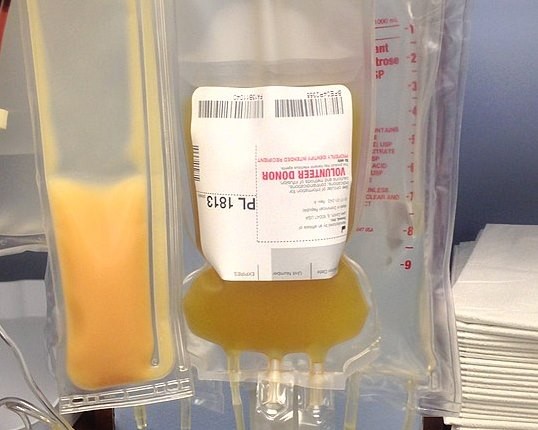90-Year-Old Man Donates Platelets for the 725th Time

Generosity means more than just giving material things to people. For 90-year-old, Sherman Hirsch from North Platte, Nebraska, gifts to share may also mean hundreds of times of "platelet donation."
Fox 4 recently reported that Hirsch has already donated platelets "725 times" and is still counting. This morning, the older adult, according to the North Platte Telegraph, was sitting on a donor chair at the American Red Cross Blood Donation Center.
The same report said, Hirsch is a regular platelet donor at the hospital and has been one for quite a long time, about 29 years now, to be exact. He has been reportedly donating platelets every two weeks.
For almost three decades now, Hirsch said he no longer remember "how he started with the platelet donation." He said he supposed though he's not sure, "Somebody contacted me."
What the older man recalled was that he was then a Hall School administrator when he started donating platelet. Having been blessed with good health, he though the need to give back.
He also added that he had been treated well in North Platte since he moved there in 1988. He knows, via the internet, which hospitals his platelets have been going to, so, he said, he understands how essential his platelets are.
ALSO READ: Blood, Salivary, and Fecal Home Test Kits: Yay or Nay?
A Donor for Cancer Patients
According to collection specialist, Shae Sanchez "platelets are used cancer patients," while the whole blood is used for low red blood cells, transfusions, low iron and trauma patients, as well as other health needs.
Sanchez explained that while platelets are suitable for just five days, blood is good for up to 56 days. Meaning, she added, the body needs more time to get the blood back; that is why a donation every eight weeks is recommended.
For platelets, the collection specialist continued, they recommend a donation every two weeks. The biggest drawback, though, according to Hirsch, "is the time it takes."
But now that he has retired, the platelet donor said, it's no longer a problem for him, so he donates 24 times each year.
DON'T MISS THIS: More Americans Are Dying From the Heat Than Ever Before, Study Says
His First Platelet Donation
Hirsch fondly recalled his first platelet donation at the office at the Willow Street office. Unable to recall the exact number of chairs there, he was able to remember having just one TV set. "I'd come in after school was out," he shared, and they'd all gather together to watch "Jeopardy."
To date, he continued, they all have their own TV sets and earplugs, so they do not interfere with each other. More so, Hirsch said the process is different at present than in the past when he started donating.
When they first began, the older adult said, two tubes were used: one for the removal of platelets and the other to return blood so both arms could not be used.
To date, only one arm is used, and the blood is taken out and run it through a piece of equipment that spins the platelets out, "Then I get my blood back," said Hirsch.
The process of giving platelets for Hirsch on Monday was planned for 102 minutes. He was given a mini-exam when he came in to check both his iron and his blood pressure.
IN CASE YOU MISSED THIS: New 5-Minute Urine Test Can Measure the Health of a Person's Diet, Study Says
Jun 29, 2020 08:00 AM EDT





